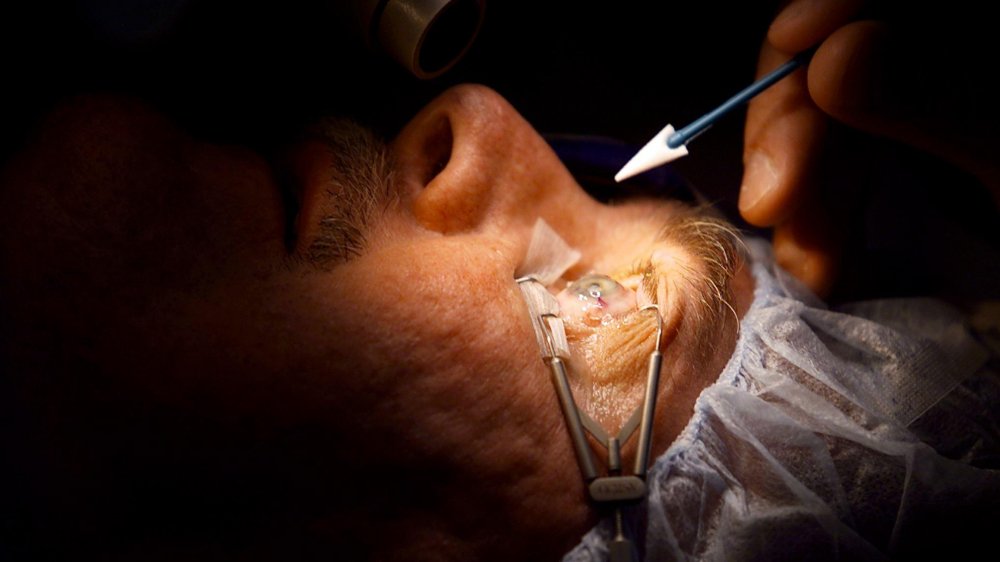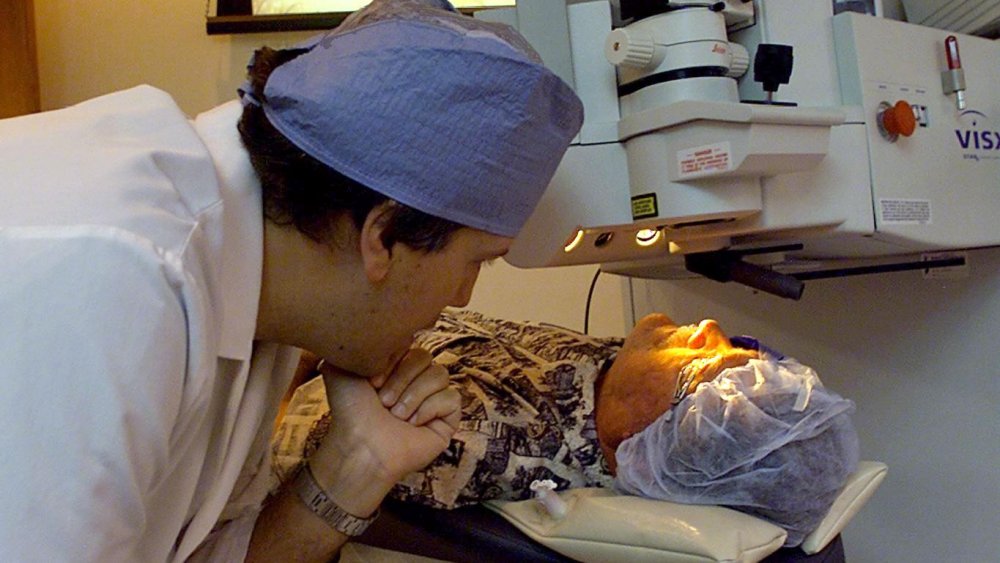How Dangerous Is LASIK Surgery?
Exotic flowers. Super Bowl halftime shows. Tom Hooper's CATS. There is so much beauty in this world. But the human eye is a fickle mistress, and if you want to see life's majesty in crisp HD without wearing glasses like some kind of a nerd, at some point you might need to consider undergoing corrective surgery, specifically of the laser variety.
Still, the prospect of paying a doctor to fire sci-fi weapons into your delicate eye jelly might seem intimidating. What are the risks associated with letting a surgeon play midnight bowling with your corneas?
Rage, rage against the frying of the light
To really understand the potential horrors waiting on the other side of that operating theater, it helps to get a feel for what laser eye surgery actually entails. LASIK, which somehow stands for laser-assisted in situ keratomileusis, is the process of using a high-intensity light beam to reshape the cornea, AKA the round front bit of the eyeball. The bare-bones basics go like this: the patient's eye, which, best case scenario has been numbed by this point, is sliced open by a doctor, surgeon, or friend who says that they're like, 80% sure that they know what they're doing. Once your shiny new eyeball flap is peeled back, a laser is directed toward the abnormal tissue in the cornea, chipping away at the unfortunate bits piece by piece until they live up to America's unrealistic standards of inner-eye beauty. The eye flap, which is a spectacular two-word combination that you should definitely bring up at dinner this week, is folded back into place. A few weeks later, if all goes well, the patient's vision is, in medical terms, "less bad."
If all doesn't go well, you're in for a treat. According to the Mayo Clinic, complications in surgery can lead to worsened vision and, if you draw the remarkably short straw, blindness.
But that's a ridiculously short straw. Most of the time, the worst thing a patient has to worry about is dryness of the eyes, which can be fixed with the vigorous application of eye drops. WebMD, generally the go-to spot for medical catastrophization, notes that LASIK patients have a 96% satisfaction rate.

